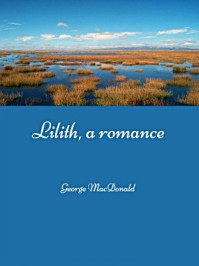




James Blatherwick was proving himself not unacceptable to his native parish, where he was thought a very rising man, inasmuch as his fluency was far ahead of his perspicuity. He soon came to note the soutar as a man far in advance of the rest of his parishioners; but he saw, at the same time, that he was regarded by most as a wild fanatic if not as a dangerous heretic; and himself imagined that he saw in him certain indications of a mild lunacy.
In Tiltowie he pursued the same course as elsewhere: anxious to let nothing come between him and the success of his eloquence, he avoided any appearance of differing in doctrine from his congregation; and until he should be more firmly established, would show himself as much as possible of the same mind with them, using the doctrinal phrases he had been accustomed to in his youth, or others so like that they would be taken to indicate unchanged opinions, while for his part he practised a mental reservation in regard to them.
He had noted with some degree of pleasure in the soutar, that he used almost none of the set phrases of the good people of the village, who devoutly followed the traditions of the elders; but he knew little as to what the soutar did not believe, and still less of what he did believe with all his heart and soul; for John MacLear could not even utter the name of God without therein making a confession of faith immeasurably beyond anything inhabiting the consciousness of the parson; and on his part soon began to note in James a total absence of enthusiasm in regard to such things of which his very calling implied at least an absolute acceptance: he would allude to any or all of them as merest matters of course! Never did his face light up when he spoke of the Son of God, of his death, or of his resurrection; never did he make mention of the kingdom of heaven as if it were anything more venerable than the kingdom of Great Britain and Ireland.
But the soul of the soutar would venture far into the twilight, searching after the things of God, opening wider its eyes, as the darkness widened around them. On one occasion the parson took upon him to remonstrate with what seemed to him the audacity of his parishioner:
"Don't you think you are just going a little too far there, Mr. MacLear?" he said.
"Ye mean ower far intil the dark, Mr. Blatherwick?"
"Yes, that is what I mean. You speculate too boldly."
"But dinna ye think, sir, that that direction it's plain the dark grows a wee thinner, though I grant ye there's nothing yet to ca' licht? Licht we may aye ken by its ain fair shinin, and by noucht else!"
"But the human soul is just as apt to deceive itself as the human eye! It is always ready to take a flash inside itself for something objective!" said Blatherwick.
"Nae doobt! nae doobt! but whan the true licht comes, ye aye ken the differ! A man may tak the dark for licht, but he canna take the licht for darkness!"
"And there must always be something for the light to shine upon, else the man sees nothing!" said the parson.
"There's thoucht, and possible insicht intil the man!" said the soutar to himself.—"Maybe, like the Ephesians, ye haena yet fund oot gien there be ony Holy Ghost, sir?" he said to him aloud.
"No man dares deny that!" answered the minister.
"Still a man mayna ken't , though he daursna deny't! Nane but them 'at follows whaur he leads, can ken that he verily is."
"We must beware of private interpretation!" suggested James.
"Gien a man hearsna a word spoken til his ain sel', he has na the word to lippen til! The Scriptur is to him but a sealed buik; he walks i' the dark. The licht is neither pairtit nor gethered. Gien a man has licht, he has nane the less that there's twa or three o' them thegither present.—Gien there be twa or three prayin thegither, ilk ane o' the three has jist what he's able to receive, and he kens 't in himsel as licht; and the fourth may hae nane. Gien it comena to ilk ane o' them, it comesna to a'. Ilk ane maun hae the revelation intil his ain sel', as gien there wasna ane mair. And gien it be sae, hoo are we to win at ony trouth no yet revealed, 'cep we gang oot intil the dark to meet it? Ye maun caw canny, I admit, i' the mirk; but ye maun caw gien ye wad win at onything!" "But suppose you know enough to keep going, and do not care to venture into the dark?"
"Gien a man hauds on practeesin what he kens, the hunger 'ill wauk in him efter something mair. I'm thinkin the angels had lang to desire afore they could luik intil certain things they sair wantit; but ye may be sure they warna left withoot as muckle licht as would lead honest fowk safe on!"
"But suppose they couldn't tell whether what they seemed to see was true light or not?"
"Syne they would hae to fa' back upo the wull o' the great Licht: we ken weel he wants us a' to see as he himsel sees! Gien we seek that Licht, we'll get it; gien we carena for't, we're jist naething and naegait, and are in sore need o' some sharp discipleen."
"I'm afraid I can't follow you quite. The fact is, I have been so long occupied with the Bible history, and the new discoveries that bear testimony to it, that I have had but little time for metaphysics."
"And what's the guid o' history, or sic metapheesics as is the vera sowl o' history, but to help ye to see Christ? and what's the guid o' seein Christ but sae to see God wi' hert and un'erstan'in baith as to ken that yer seein him? Ye min' hoo the Lord said nane could ken the Father but the man to whom the Son revealt him? Sir, it's fell time ye had a glimp o' that! Ye ken naething till ye ken God—the only ane a man can truly and railly ken!"
"Well, you're a long way ahead of me, and for the present I'm afraid there's nothing left but to say good-night to you!"
And therewith the minister departed.
"Lord," said the soutar, as he sat guiding his awl through sole and welt and upper of the shoe on his last, "there's surely something at work i' the yoong man! Surely he canna be that far frae waukin up to see and ken that he sees and kens naething! Lord, pu' doon the dyke o' learnin and self- richteousness that he canna see ower the tap o', and lat him see thee upo' the ither side o' 't. Lord, sen' him the grace o' oppen e'en to see whaur and what he is, that he may cry oot wi' the lave o' 's, puir blin' bodies, to them that winna see. 'Wauk, thoo that sleepest, and come oot o' thy grave, and see the licht o' the Father i' the face o' the Son.'"
But the minister went away intent on classifying the soutar by finding out with what sect of the middle-age mystics to place him. At the same time something strange seemed to hover about the man, refusing to be handled in that way. Something which he called his own religious sense appeared to know something of what the soutar must mean, though he could neither isolate nor define it.
Faithlessly as he had behaved to Isy, Blatherwick was not consciously, that is with purpose or intent, a deceitful man. He had, on the contrary, always cherished a strong faith in his own honour. But faith in a thing, in an idea, in a notion, is no proof, or even sign that the thing actually exists: in the present case it had no root except in the man's thought of himself, in his presentation to himself of his own reflected self. The man who thought so much of his honour was in truth a moral unreality, a cowardly fellow, a sneak who, in the hope of escaping consequences, carried himself as beyond reproof. How should such a one ever have the power of spiritual vision developed in him? How should such a one ever see God—ever exist in the same region in which the soutar had long taken up his abode? Still there was this much reality in him, and he had made this much progress that, holding fast by his resolve henceforward no more to slide, he was aware also of a dim suspicion of something he had not seen, but which he might become able to see; and was half resolved to think and read, for the future, with the intent to find out what this strange man seemed to know, or thought he knew.
Soon finding himself unable, however, try as hard as he might, to be sure of anything, he became weary of the effort, and sank back into the old, self-satisfied, blind sleep.


